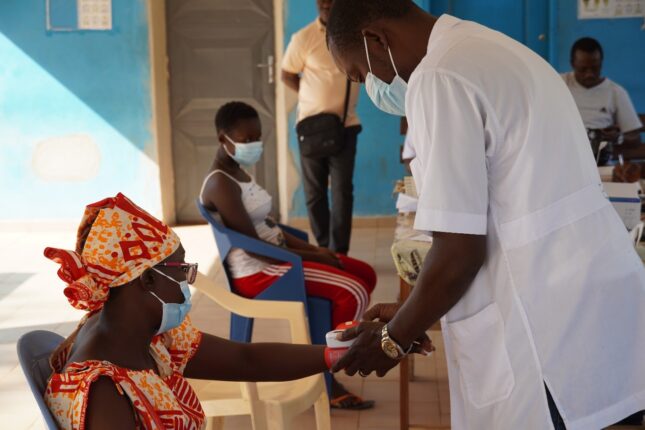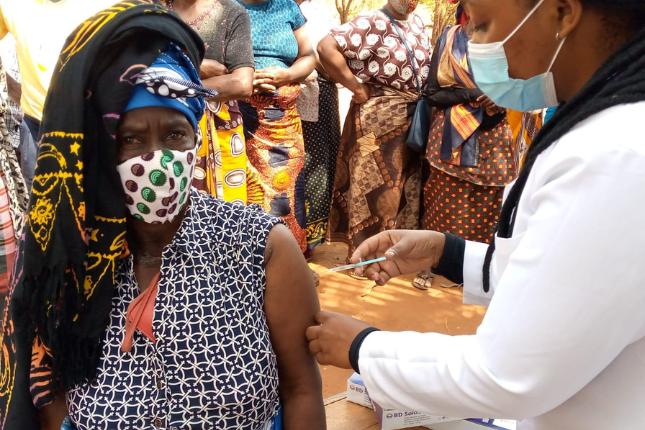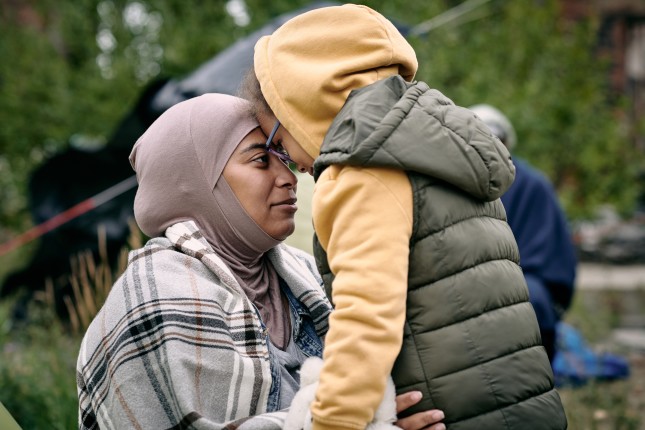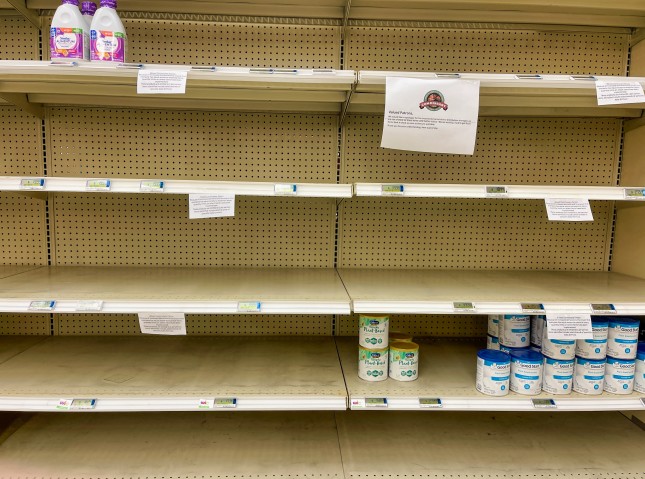-
Lessons from the COVID-19 Pandemic Can Help Achieve Health for All
›
“The [COVID-19] pandemic, as all of you know, severely disrupted essential health services in countries around the world, and it left many health systems reeling from the drain on resources,” said Nidhi Bouri, Assistant Administrator for Global Health at the United States Agency for International Development (USAID) at a recent Wilson Center event to assess lessons learned in coping with the stressors created by the global health crisis.
-
Crisis to Innovation: Lessons from COVID-19 Can Transform Routine Immunization Strategies
›
At a recent Wilson Center event, hosted in partnership with USAID’s MOMENTUM Routine Immunization Transformation and Equity Project, Dr. Folake Olayinka, Immunization Technical Lead of the Global Health Bureau at USAID, described a recent two year period as “the largest sustained backsliding of childhood vaccination,” citing the fact that “between 2019 and 2021, approximately 67 million children missed out on essential lifesaving vaccines.”
-
Maternal Health and The Pandemic: It’s Not Good News
›
COVID-19 has dealt out a double dose of woe for global maternal health. According to a new report from the Government Accountability Office (GAO), the pandemic saw an increase in maternal deaths and an exacerbation of racial disparities driving this overall morbidity. In addition, childbearing people experienced significant anxiety and depression.
-
Pandemic Learning: Migrant Care Workers and Their Families Are Essential in a Post-COVID-19 World (New Report)
›
“The COVID-19 pandemic has brought into the open two things that much of the world has always assumed but not fully acknowledged: women do the vast majority of caregiving, and caregiving is grossly undervalued. Caregiving is also the fastest-growing economic sector in the world—projected to add 150 million jobs by 2030. Global societal changes, like low birth rates, demographic aging, and an increase in female labor force participation, are basic drivers of the continued growth of this sector. But because in many cultures care work is considered “instinctive” for women—a type of work not requiring skill—it has remained virtually invisible, unpaid or underpaid and unregulated. It is also often stigmatized, especially when relegated to already marginalized and underrepresented populations.” – Pandemic Learning: Migrant Care Workers and Their Families Are Essential in a Post-COVID-19 World
-
New Global Health & Gender Policy Brief: Mental Health and COVID-19
›
The COVID-19 pandemic has had far-reaching, negative impacts on health and well-being, particularly in population mental health. Mental health is strongly related to people’s social environment, and the COVID-19 pandemic disrupted this greatly. Many countries instituted shutdowns early in the pandemic restricting people’s movement both within and between countries. Shutdowns socially isolated people from one another and often led to poor mental health. The highest rates of mental distress occurred during time periods when COVID-19 mitigation measures were strictest and the number of COVID-19 related deaths was highest.
-
Community and Collaboration: Maternal Mental Health in the Infant Formula Crisis
›
The infant formula shortage and the COVID-19 pandemic have added fuel to an already existing fire in maternal mental health in the United States.
As Adrienne Griffen, Executive Director of Maternal Mental Health Leadership Alliance pointed out at a recent event on the COVID-19 pandemic, maternal mental health, and policy solutions, “maternal mental health conditions, including anxiety, depression, and other issues, affect 1 in 5 pregnant or postpartum people [in the U.S.].”
-
COVID-19 Heightens Mental Health Conditions for Vulnerable Communities
›
The COVID-19 pandemic has created universal impacts on mental health. Anxiety, depression, and other conditions have worsened as financial instability, isolation, gender-based violence, and other factors generated by this crisis have contributed to poor mental health – especially for youth, LGBTQ+ populations, and pregnant/postpartum women. Yet despite the global attention focused on mental health, overall conditions have only worsened in vulnerable communities.
-
The Lasting Effects of the COVID-19 Pandemic on Women’s Work, Health, and Safety (New Report)
›
While the COVID-19 pandemic has affected the lives of many around the world, its effects on women have been particularly devastating. Even before the pandemic, women are highly affected by violence. Since the pandemic, rates of gender-based violence have risen, while uptake of critical health services have decreased. Women, especially low-income women, women of color, and migrant women, are also more likely to work in jobs that are underpaid, undervalued, and unprotected, and they comprise the majority of the frontline or “essential” workforce, which includes grocery and food retail workers, health care workers, and care workers.
Showing posts from category Covid-19.











